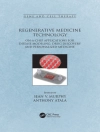There is little doubt that information technology is a major force in transforming healthcare systems: physicians need to have considerable patient data at hand, even if diagnosis and treatment are relatively straightforward. But data are only as useful as ICT—information communication technology—systems make them. Inefficient handling of data can quickly lead to chaos, and possibly to fatalities. Strategic ICT Planning in Pathology illuminates these problems, as well as their potential solutions, based on a unique body of research from Australia. Focusing on core strategic factors such as laboratory information systems capability and effectiveness, business-IT alignment, strategic spending, research and education, and end-user involvement, the book explains why pathology labs lag behind other hospital departments. Survey and focus group findings pinpoint the importance of Strategic Information System Planning (SISP), and its relationship to quality service delivery and an improved bottom line [ok?]. Among the topics covered: Approaches to SISP and IS effectiveness measurement. The Open Labs project and pathology practice. Development of a framework for SISP. Focus groups: the view from the hospital laboratory, the private pathology lab, and the experts. Key findings and their implications for strategy, planning, and business outcomes. Future research directions, including reverse SISP. Strategic ICT Planning in Pathology is a go-to resource for healthcare administrators and researchers in healthcare management, health policy, and health services research interested in troubleshooting systems, conducting surveys on IS, or better understanding how quality ICT works.
Cuprins
Chapter 1. Background and Problem Domain.- Chapter 2. SISP and its Effectiveness Measurement.- Chapter 3. SISP and its Effectiveness Measurement – Pathology Practice.- Chapter 4. Focus Groups 1 and 2 – The Laboratory.- Chapter 5. Focus Group 3 – The Experts.- Chapter 6. Discussion and Conclusions.
Despre autor
Dr Mark Belkin Ph D, BApp Sc(Lab Med) pursued an interest in science and medicine and enrolled in BApp Sc (laboratory medicine) at RMIT. He majored in haematology and has worked in the pathology laboratory for 25+ years. Most of his working life was in a senior capacity, and involved clinical, technical and teaching duties. Dr Belkin enrolled in studies for his Ph D (Management Information Systems) at RMIT, and has taught in enterprise systems and BPR, systems integration and information systems management whilst studying. His doctoral research was based on a suite of pathology laboratory management programs he designed, and forms the basis of this book. The suite of programs is envisaged to act as a re-engineering tool to change current pathology management structure from a pyramidal hierarchy to a series of laterally linked self contained business units. Dr Belkin currently manages an on-line medical informatics post graduate course at RMIT and has published in the area of business analysis and strategic planning applied to pathology informatics. He is a member of the Health Informatics Society of Australia.
Professor Brian Corbitt is currently Professor of Information Systems and Deputy Pro Vice Chancellor Business Research at RMIT University. He has previously been Adjunct Professor of IT at KMIT (NB) and then Professor of Management Science at Shinawatra University in Thailand, Pro Vice Chancellor (Online Services at Deakin University, JADE Professor of e Commerce at Victoria University of Wellington in New Zealand. and prior to that lectured at the University of Melbourne, where he was also Head of International House, He specializes in IT policy development, analysis and implementation, in e-Business Modeling and Electronic Commerce trade relationships, and health policy and IT. He has published 10 books on e Business, e Commerce and e Government, . He has also published over 150 refereed scholarly papers, and also numerous government reports to the Governments of Thailand and New Zealand, and many invited papers as a keynote speaker on IT policy in Malaysia, Singapore, Thailand, New Zealand, Japan, Hong Kong, and Australia. He is a Senior Editor of Information and Management .
Nilmini Wickramasinghe Ph D MBA, who currently holds the Epworth Chair Health Information Management, was appointed in Dec 2009 as a Professor to RMIT University’s School of Business IT and Logistics after being a professor in the US for 15 years. She researches and teaches in several areas within information systems including knowledge management, e-commerce and m-commerce, and organizational impacts of technology with particular focus on the applications of these areas to healthcare and thereby effecting superior healthcare delivery. Professor Wickramasinghe is well published with more than 200 referred scholarly articles, several books and an encyclopedia. She has collaborated with many large organizations such as NASA and GE as well as leading healthcare organizations such as the Cleveland Clinic, Johns Hopkins, Kaiser and North Western Memorial Hospital. In addition, she regularly presents her work throughout North America, as well as in Europe and Australia. Professor Wickramasinghe is the editor-in-chief of two scholarly journals: International Journal of Networking and Virtual Organisations (IJNVO – www.inderscience.com/ijnvo ) and International Journal of Biomedical Engineering and Technology (IJBET- www.inderscience.com/ijbet) and the Springer Series editor for Healthcare Delivery in the Information Age.












